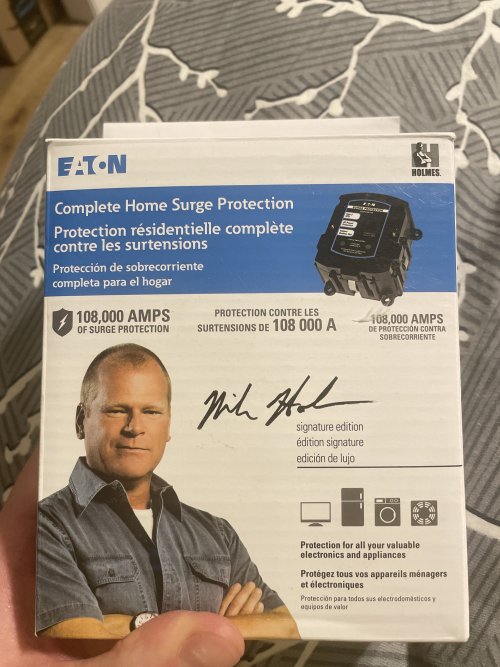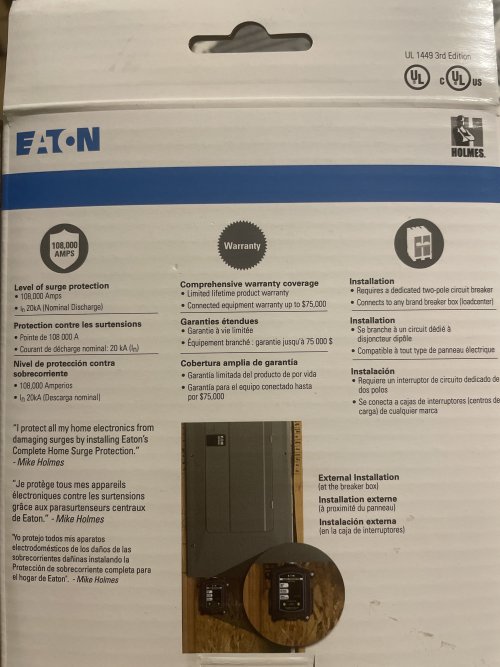SD_Prairie_Goat
Well-known member
The recent the Hawaiian wild fires caused server property and loss of life. This thread isn't about that, but about what some possible outcomes may come about because of a recent slew of lawsuits served to the serving electric utility.
Please feel free to read [1] for more details on a few of the lawsuits, but I'd rather talk about what I see as some possible worst case outcomes if these lawsuits are successful.
First, premature blackouts in adverse weather
"The lawsuit alleges that the electric company, known as HECO, “inexcusably kept their power lines energized” in early August, despite the fact that the National Weather Service issued a High Wind Watch and a Fire Warning. The warnings cautioned that strong winds could knock down power lines and ignite a fire that would spread quickly due to dry conditions, the lawsuit indicated."[1]
Here is my biggest concern, this lawsuit is heading down a path that would see electric utilities turn off power in advance of certain weather conditions in order to minimize the risk of the electrical power distribution system causing a wildfire. California PG&E already has started to do so because of the camp fires in which their lines caused the blaze [2]. I worry that if states start mandating when utilities must shut down the grid it will lead to an ever more common event where we, the customers, are left without power for days at a stretch. Especially, when we consider that climate change is increasing the duration and frequency of storm events, along with drought.
"According to an August 2021 report by the Intergovernmental Panel on Climate Change, scientists have high confidence that for every half degree Celsius (0.9 degree Fahrenheit) the atmosphere warms, noticeable increases will occur in some regions in the intensity and frequency of droughts that harm agriculture and ecosystems. Similarly, the report notes that extreme agricultural and ecological drought events that used to occur once every 10 years are now 1.7 times more likely than they were from 1850 to 1900, before humans heavily influenced the climate."[3]
If this lawsuit is successful in placing blame on Hawaiian Electric for failing to deenergize their lines when there were red flag weather warnings, we may be in drastic shift in the way our electric utilities serve us. Currently, the general practice among almost all electric utilities, is to keep the power on unless drastic events happen, line failures, substation failures, transformer failures, etc. But if they are forced to shift this way of thinking, we may end up finding our power being cut every time the NWS issues a red flag warning for fire spread. We may be without power every time there is a tornado warning. The list can go on depending on how far it is possibly taken.
How does that affect us regular folks? Well just imagine losing power for 2 days every time there is a red flag warning. No more AC in the summer, no power for your fridge or freezer, no tv. The list obviously goes on. Those aren't the worst though, maybe a couple rough nights of sleep without AC, big deal. What about all the senior living facilities without any backup generators? What about the areas experiencing record heat waves? I worry about what may become of our electric grid if we have to deenergize every time there is a possibility of lines falling and starting a fire.
Second, Disaster Response Timing is going to be affect for the worse
This is little more tricky, but I don't like the precedent that it sets by slowing disaster response.
"As it worked to restore power to the island, Hawaiian Electric moved fallen power poles, power lines, transformers, conductors and other equipment from near a Lahaina substation beginning around August 12, before agents from the federal Bureau of Alcohol, Tobacco, Firearms and Explosives (ATF) arrived on scene, the Post reported, citing court documents, letters and other records it obtained." [1]
My worry is that if sites must be left undisturbed for investigators to review prior to any response, we run into a situation where the utility is hampered from being able to restore power to those that can use it. Investigations can take an unknown amount of time, during which the utility can't even start to remedy the situation. When speed is a priority to restore power to a community, waiting a couple days or even weeks for investigators can be a massive burden on the customers of the utility. Normally disaster response is all about getting power restored as fast as possible to as many users as possible. Priority given to high need users, hospitals, senior living, fire stations, etc. Forcing the utility to sit and wait is not a good situation.
I'm not sure what all is going to come of these lawsuits, I will try and watch them to see what happens. If I had one piece of advice, it would be to have a generator on hand for your home. Even being in town won't fully insulate you from any of these changes. A cheap generator can provide much security for little cost when done in advance. Thanks for attending my Ted Talk
Sources:
[1] https://www.cbs58.com/news/maui-gov...y-of-causing-lahaina-wildfires#:~:text=(CNN)
[2] https://www.pge.com/en_US/residenti...ety-power-shuttoff/why-psps-events-occur.page
[3] https://yaleclimateconnections.org/...ugust 2021,droughts that harm agriculture and
Please feel free to read [1] for more details on a few of the lawsuits, but I'd rather talk about what I see as some possible worst case outcomes if these lawsuits are successful.
First, premature blackouts in adverse weather
"The lawsuit alleges that the electric company, known as HECO, “inexcusably kept their power lines energized” in early August, despite the fact that the National Weather Service issued a High Wind Watch and a Fire Warning. The warnings cautioned that strong winds could knock down power lines and ignite a fire that would spread quickly due to dry conditions, the lawsuit indicated."[1]
Here is my biggest concern, this lawsuit is heading down a path that would see electric utilities turn off power in advance of certain weather conditions in order to minimize the risk of the electrical power distribution system causing a wildfire. California PG&E already has started to do so because of the camp fires in which their lines caused the blaze [2]. I worry that if states start mandating when utilities must shut down the grid it will lead to an ever more common event where we, the customers, are left without power for days at a stretch. Especially, when we consider that climate change is increasing the duration and frequency of storm events, along with drought.
"According to an August 2021 report by the Intergovernmental Panel on Climate Change, scientists have high confidence that for every half degree Celsius (0.9 degree Fahrenheit) the atmosphere warms, noticeable increases will occur in some regions in the intensity and frequency of droughts that harm agriculture and ecosystems. Similarly, the report notes that extreme agricultural and ecological drought events that used to occur once every 10 years are now 1.7 times more likely than they were from 1850 to 1900, before humans heavily influenced the climate."[3]
If this lawsuit is successful in placing blame on Hawaiian Electric for failing to deenergize their lines when there were red flag weather warnings, we may be in drastic shift in the way our electric utilities serve us. Currently, the general practice among almost all electric utilities, is to keep the power on unless drastic events happen, line failures, substation failures, transformer failures, etc. But if they are forced to shift this way of thinking, we may end up finding our power being cut every time the NWS issues a red flag warning for fire spread. We may be without power every time there is a tornado warning. The list can go on depending on how far it is possibly taken.
How does that affect us regular folks? Well just imagine losing power for 2 days every time there is a red flag warning. No more AC in the summer, no power for your fridge or freezer, no tv. The list obviously goes on. Those aren't the worst though, maybe a couple rough nights of sleep without AC, big deal. What about all the senior living facilities without any backup generators? What about the areas experiencing record heat waves? I worry about what may become of our electric grid if we have to deenergize every time there is a possibility of lines falling and starting a fire.
Second, Disaster Response Timing is going to be affect for the worse
This is little more tricky, but I don't like the precedent that it sets by slowing disaster response.
"As it worked to restore power to the island, Hawaiian Electric moved fallen power poles, power lines, transformers, conductors and other equipment from near a Lahaina substation beginning around August 12, before agents from the federal Bureau of Alcohol, Tobacco, Firearms and Explosives (ATF) arrived on scene, the Post reported, citing court documents, letters and other records it obtained." [1]
My worry is that if sites must be left undisturbed for investigators to review prior to any response, we run into a situation where the utility is hampered from being able to restore power to those that can use it. Investigations can take an unknown amount of time, during which the utility can't even start to remedy the situation. When speed is a priority to restore power to a community, waiting a couple days or even weeks for investigators can be a massive burden on the customers of the utility. Normally disaster response is all about getting power restored as fast as possible to as many users as possible. Priority given to high need users, hospitals, senior living, fire stations, etc. Forcing the utility to sit and wait is not a good situation.
I'm not sure what all is going to come of these lawsuits, I will try and watch them to see what happens. If I had one piece of advice, it would be to have a generator on hand for your home. Even being in town won't fully insulate you from any of these changes. A cheap generator can provide much security for little cost when done in advance. Thanks for attending my Ted Talk
Sources:
[1] https://www.cbs58.com/news/maui-gov...y-of-causing-lahaina-wildfires#:~:text=(CNN)
[2] https://www.pge.com/en_US/residenti...ety-power-shuttoff/why-psps-events-occur.page
[3] https://yaleclimateconnections.org/...ugust 2021,droughts that harm agriculture and






